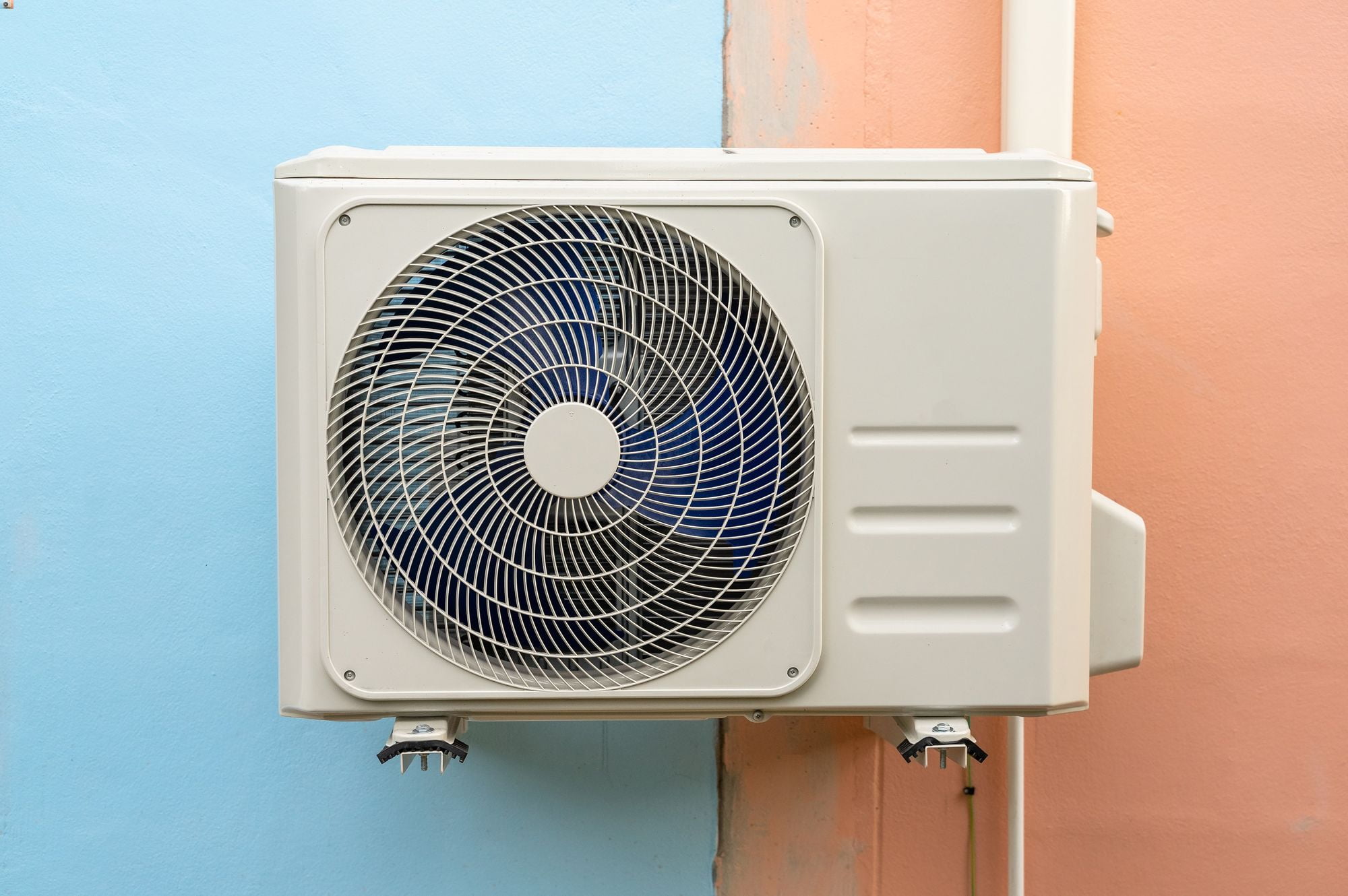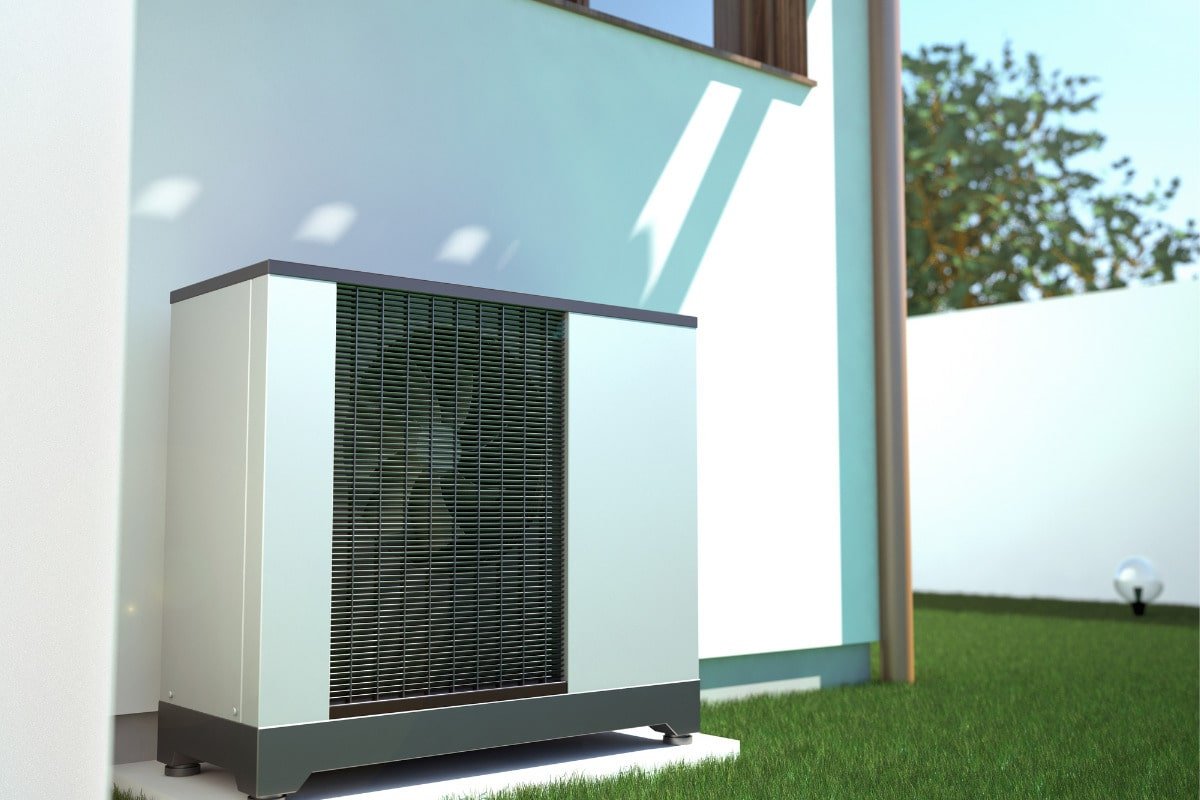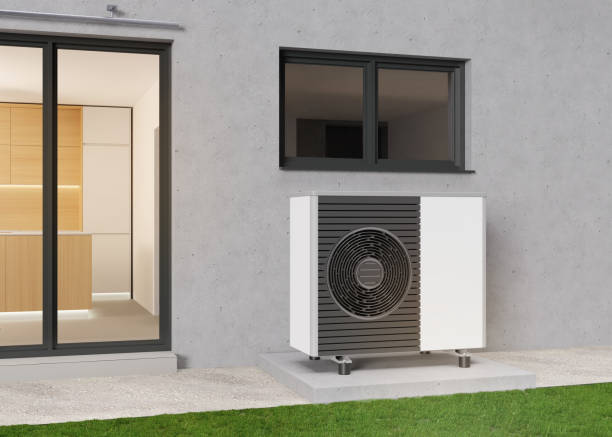
The government is encouraging the adoption of air source heat pumps, which are an efficient and renewable energy source that can reduce your carbon footprint by 44%.
These pumps are simple to purchase, install, and comprehend. They work by taking air from the surroundings of your home and using it as fuel to heat your home and water. They use three times less energy than gas boilers and can be entirely eco-friendly if powered by renewable electricity.
As new homes will soon be banned from using gas boilers, it is wise to consider air source heat pumps, which can save you money over time.
If you are interested in investing in a heat pump, fill out a quick form with some details, and we will connect you with local experts who can offer you free quotes, ensuring that you receive the best possible deal for your property.

What’s on this page?
How Does an Air Source Heat Pump Work?
Air source heat pumps offer efficient heating and cooling solutions for homes in various climates. These heat pumps utilize low-carbon technology, which converts solar energy from the outside air into electricity for domestic heating.
Among UK households, domestic air source heat pumps are known to be one of the most affordable and cost-efficient heating solutions available.
Air source heat pumps are incredibly popular in the UK, accounting for 87% of all heat pumps sold. They are set to play a critical role in the country's efforts to achieve its Net Zero Target by 2050.
If you're considering purchasing an air source heat pump, Eco Energy Expert offers a convenient service that provides up to four quotes from licensed installers in your local area. This free service allows you to compare quotes and find the best deal possible, streamlining the process of finding an installer and purchasing a heat pump.
Get Free Air Source Heat Pump Quotes
Compare the price now by filling in this form - It takes less than 60 seconds
How much does an air source heat pump cost?
The average cost of an air source heat pump is around £10,000, but it's currently possible to purchase one for significantly less. A grant from the Boiler Upgrade Scheme can reduce the cost by £5,000, and a price war between British Gas and Octopus means that some heat pumps are available for as little as £2,500.
In addition to the upfront savings, switching to an air source heat pump can save you up to £6,700 more than if you were to continue using a gas boiler over a 20-year period. These savings make air source heat pumps a cost-effective and practical option for many households.
| House Type | Estimated Cost | Total CO2 Reduction |
|---|---|---|
| 1-2 Bedrooms | £7,000 | 47.95 tonnes |
| 3 Bedrooms | £10,000 | 68.5 tonnes |
| 4+ Bedrooms | £13,000 | 89.05 tonnes |
What about the Air Source Heat Pump Installation Cost?
The cost of installing an air source heat pump typically ranges from £3,000 to £10,000, depending on your current heating system, according to Energy Saving Trust. Additional costs may be incurred if you require auxiliary work, such as installing new radiators or underfloor heating, which could add £2,000 to £4,000 to the overall cost. The total quote usually includes labour costs and any additional work required.
Air source heat pumps are popular in the retrofit market due to their easy installation process, but if you need additional work done before installing the pump, the installation costs may increase.
To fully utilize the capabilities of your new heat pump, you may need to consider installing underfloor heating, upgrading your insulation, or even replacing some radiators with ones that are 2.5 times larger than normal.
Replacing all of your radiators may not be necessary, but it's typical for about one-third of them to require replacement. This is due to the lower heat output of a heat pump over a longer period of time.
Although this gradual heat output is the reason for the higher efficiency, it necessitates large heating surfaces or insulation that can hold onto the heat produced by the pump.
The installation of a heat pump and any necessary auxiliary equipment should be performed by a specialist. It is a complicated process that should only be handled by experts who can also teach you how to use it effectively and efficiently.
To find the best and most competitive installation prices based on your home's unique specifications, it's recommended to compare quotes from multiple installers. However, finding trustworthy installers can be a challenging task and time-consuming. Eco Energy Expert offers a quick and easy solution by providing a free service that connects you with licensed installers in your local area. Simply fill in the form on our website to get started.
Get Free Air Source Heat Pump Quotes
Compare the price now by filling in this form - It takes less than 60 seconds
Air source heat pump running costs
There are various factors that influence the running costs of a heat pump, including the size of the system, its efficiency (SCOP), the outdoor temperature, your energy usage, the insulation of your home, and any available government grants and schemes.
On average, the cost of running an air source heat pump is £1,360 per year, which is currently more expensive than running a gas boiler. However, this may not be the case in the future. To reach this estimate, we need to consider that the average home uses 12,000 kWh for heating annually, according to Ofgem. The good news is that air source heat pumps typically generate three units of heat energy for every unit of electricity they consume.
This high efficiency is due to the fact that water holds onto heat better than air. This efficiency rate is known as the Coefficient of Performance (COP), and a 300% efficiency rate means that only 4,000 kWh of electricity is required to produce the 12,000 kWh needed to heat the average home for a year, provided that the heat pump is the sole heating system. It is important to note that the efficiency rate of a heat pump can vary depending on a number of factors.
The current average price of electricity is 34p per kWh, compared to gas which is only 10.3p per kWh, making it 3.3 times more expensive. This means that, despite the fact that air source heat pumps are 300% more efficient than gas boilers, they are slightly more expensive to run, with an average cost of £1,360 per year compared to £1,236 for a typical gas boiler.
However, it's important to consider the long-term costs. A gas boiler needs to be replaced every 10 years, while a heat pump can last for 20 years or more. Additionally, the price of gas is expected to increase faster than electricity. Choosing a heat pump can therefore save you £6,700 overall, when you factor in the cost of replacing a gas boiler and the rising cost of gas.
To get started, simply provide some details about your home in our quote tool, and we'll connect you with specialist suppliers who can offer free heat pump quotes for you to compare.
Get Free Air Source Heat Pump Quotes
Compare the price now by filling in this form - It takes less than 60 seconds

Pros and Cons of Air Source Heat Pump
-
Affordable capital costs
-
Easy to install
-
Low carbon emissions
-
Highly efficient
-
Low running costs
-
Boiler Upgrade Scheme
-
Lower max. tap water temperature
-
Noisy outdoor fan
Boiler Upgrade Scheme
A new government grant now enables homeowners in England and Wales to obtain a discount of £5,000 on air source heat pumps and £6,000 on ground source heat pumps.
This initiative aims to reduce the financial barrier for individuals who may struggle to afford the £10,000 cost of updating their heating system. By taking advantage of this grant, households can save money over the lifespan of the heat pump.
However, the government's financial commitment to this initiative has been disappointingly low, with only £450 million allocated to support a maximum of 90,000 households out of 28.1 million in the UK. This represents a small fraction of just 0.3%. Therefore, it is advisable to act quickly before the funding runs out.
Get Free Air Source Heat Pump Quotes
Compare the price now by filling in this form - It takes less than 60 seconds
How to Prepare My Home for an Air Source Heat Pump
Before you take the step of buying an air source heat pump, it would be smart to consider your current situation and the possibility of implementing changes.
Space
When installing an air source heat pump, it is crucial to consider the availability of sufficient space. The outdoor unit of the heat pump is usually mounted on a wall or on the ground and requires adequate clearance around it to enable proper air circulation. Choosing a location near a sunny wall is recommended to optimize the heat pump's functionality.
Level of Insulation
Another crucial factor to consider is the insulation of your home. Air source heat pumps work most effectively in well-insulated homes. To maximize the efficiency of your heat pump, it is advisable to install appropriate insulation and draught-proofing measures in your home.
Current heating system
It is also important to consider the type of heating system you are currently using and the energy source it employs. If your home is heated using electricity or coal, switching to an air source heat pump can result in a faster return on investment.
Moreover, it is worthwhile to evaluate the heating systems that are installed in your home. Opting for an air to water heat pump can be advantageous if it is integrated with an underfloor heating or warm air heating system due to the lower water temperatures required for these systems.
Complement
The final factor to consider is exploring potential options to complement your air source heat pump. Incorporating other building work or green home solutions alongside the heat pump system can reduce installation costs and increase overall efficiency.
Integrating a secondary system can serve as a backup or enhance the heat pump's performance. Although not mandatory, combining an air source heat pump with a condensing boiler is an option.
Additionally, you could power your air source heat pump system with solar panels, which would further reduce your carbon footprint.
Find the right installer
Before investing in an air source heat pump, it is crucial to select the appropriate installer. Asking certain questions can help you determine whether the installer is qualified and capable of providing the right system for your needs.
Get Free Air Source Heat Pump Quotes
Compare the price now by filling in this form - It takes less than 60 seconds










